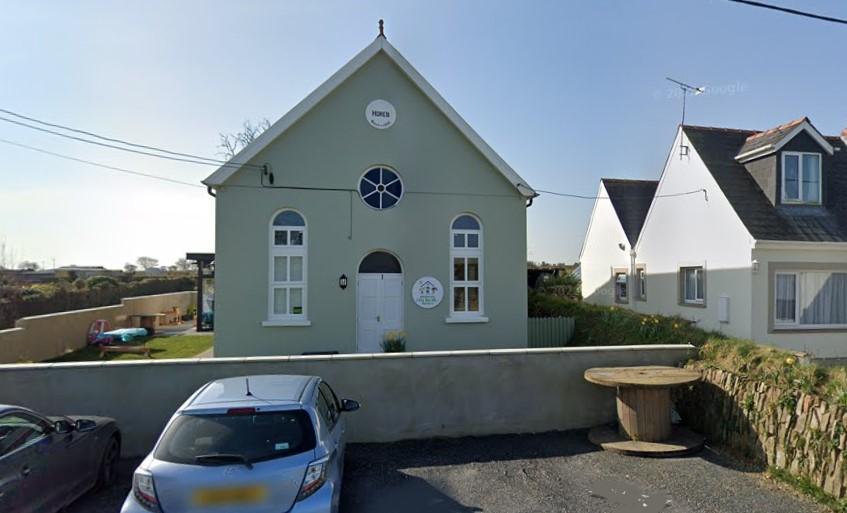Education
NUT debates asbestos in schools


Asbestos: £10m in compensation
ASBESTOS remains a killer in schools and there is simply no evidence to support the Government’s case that it is safer to manage asbestos than to remove it.
That’s according to the National Union of Teachers, who held their conference in Cardiff over the Easter break.
ASBESTOS A SCANDAL
Commenting after the debate on Motion 26, Kevin Courtney, General Secretary of the National Union of Teachers, the largest teachers’ union, said: “The continuing presence of asbestos in nearly 90% of our schools is a scandal and is risking the lives of children and staff. In 2014 there were 17 teacher deaths from mesothelioma. Children are even more at risk because of the long latency of asbestos diseases such as mesothelioma.
“The Government and the Health and Safety Executive do not acknowledge that there is a serious problem with asbestos in schools and as a consequence there is no political will to remove it.
“The findings of a survey of NUT members provide no comfort for the Government and HSE’s view that the current policy of managing asbestos in situ is working.
“An NUT survey on asbestos in schools shows that nearly 50% of respondents did not know whether their school contained asbestos and only 2% of respondents said that parents had been given information about the presence of asbestos in the school.
“This is deeply worrying given that the majority of schools (86%) do contain asbestos. Parents, children and teachers should not be kept in the dark about this issue that has serious and life threatening consequences to those exposed to it.
“The NUT will continue to work with its partner unions through the Joint Union Asbestos Committee. We are calling for Government to undertake a national audit of the extent, type and condition of asbestos in our schools and to begin a long-term phased removal of asbestos from our schools, with schools in the worst condition prioritised. This ticking time bomb has to be eradicated from our schools.”
TEACHERS AND PUPILS AT RISK
The union has called for asbestos’ removal must take place under strictly controlled conditions and claims it is misleading and scaremongering to suggest that removal might be unsafe.
At least 319 teachers have died from mesothelioma since 1980, and 205 of these deaths have occurred since 2001.
The real numbers are likely to be much higher because these figures do not include anyone over the age of 75.
Teachers are now dying from mesothelioma at an average of 17 per year, up from three per year during 1980-85.
Much of the asbestos in schools was installed during the 1940s -1970s, and is in a deteriorating state. When asbestos is in poor condition, fibres are more likely to be released. Therefore, phased removal, with priority given to the most dangerous materials, is the practical solution and is the only way to ensure that schools are safe.
Some 86% of schools contain asbestos, and, as all children attend school, the numbers facing potential exposure are huge.
£10M PAID IN COMPENSATION
Professor Julian Peto, a leading epidemiologist, has estimated that between 200 and 300 people die each year of mesothelioma because of exposure to asbestos when they were a pupil.
Schools are different to other workplaces as children are more at risk from asbestos exposure. This is because they have longer lives ahead in which to develop asbestos-related disease. The greater risk to children was confirmed by the Department of Health’s Committee on Carcinogenicity in June 2013.
A child exposed at age five is five times more likely to develop mesothelioma than someone exposed at age 30.
Freedom of Information (FOI) requests submitted to all local authorities in England and Wales have revealed that, in the last decade, over £10m has been paid in compensation to former pupils and members of staff exposed to asbestos in schools.
86% OF SCHOOLS CONTAIN ASBESTOS
An NUT survey carried out in March 2015 found that 44% of respondents had not even been told whether their school is one of the 86% which do contain asbestos.
Inspections carried out by the Health and Safety Executive (HSE) over the last few years found flaws in asbestos management in a number of schools that have led to enforcement action. Since relatively few schools have been inspected, this begs the question, what about the rest?
Asbestos management can be expensive and time-consuming and requires a sustained commitment, even when changes to personnel take place, or when schools convert to academy status. The alternative – removal – means the problem is dealt with once and for all.
In 2016, the DfE surveyed all head teachers about asbestos management in their school. Unfortunately, as the survey was not compulsory, only 25% of schools responded. Of those that did, nearly 30% needed to improve their asbestos management and 19% were not compliant with the Control of Asbestos Regulations. This included 2% of schools which gave serious cause for concern.
In March 2017, it was reported to the Public Accounts Committee that pupils at a school in Sunderland had to be ‘hosed down’ on more than one occasion because asbestos fibres were released from ceiling tiles.
NO LONG-TERM STRATEGY
The findings of the Government’s review of its asbestos in schools policy, published on March 12, 2015, were a step in the right direction with a new focus on training for staff and accountability of duty holders.
What was lacking, however, is a long-term strategy for the gradual eradication of asbestos from schools.
£300,000 was spent removing asbestos from royal households in 2014-15, and a further £150m has been earmarked for royal refurbishment works, which includes asbestos removal.
Likewise, restoration works to the Houses of Parliament are scheduled to cost between £3.5b and £5.7b, a sum which includes asbestos removal.
The NUT has asked: if asbestos removal is good enough for royal households and politicians – why should pupils and teachers receive anything less than this?
The NUT has recommended that all teachers should be aware if their school contains asbestos, and specifically where it is located, to avoid unintentionally disturbing it.
If there is no asbestos survey available, teachers should ensure that this information is provided to them by the dutyholder/headteacher.
Education
Pembrokeshire youth workers lead life-changing wellbeing visit to Iceland

A GROUP of Pembrokeshire school-based youth workers recently took young people from four secondary schools on an unforgettable six-day visit to Iceland — a journey focused not only on education, but also on wellbeing, confidence and personal growth.
Funded through Taith, an international learning exchange programme for people in Wales, the trip brought together young people from across the county, many of whom had never travelled abroad before.
From the moment they arrived, the experience was designed to encourage participants to step outside their comfort zones, build resilience and develop friendships in a supportive environment.
One of the most powerful moments came as the group stood together at the Old Harbour in Reykjavik under the night sky, watching the Northern Lights shimmer above them. For many, it provided a rare pause from everyday pressures — a moment of calm, connection and awe that youth workers say will remain with them for years to come.
The group also attended Iceland’s Festival of Lights, experiencing the atmosphere of creativity, music and community spirit. Sharing the celebration helped young people appreciate the importance of culture, belonging and collective joy in supporting mental wellbeing.
A visit to the Secret Lagoon offered further opportunities to slow down. Immersed in warm geothermal waters surrounded by dramatic scenery, participants experienced the benefits of relaxation and mindfulness. Youth workers noted that these quieter moments allowed conversations to develop naturally, strengthening trust and deepening relationships.
The trip placed strong emphasis on teamwork and independence. Young people navigated travel arrangements, managed responsibilities, supported one another and adapted to unfamiliar surroundings — experiences which helped build confidence and social skills.
Meeting Icelandic peers at a local youth club was another highlight. Conversations about daily life, hopes and ambitions reinforced the idea that young people across the world share similar challenges and aspirations. These exchanges fostered empathy, broadened horizons and encouraged a stronger sense of global citizenship.
Senior Youth Worker Tristy McDermott said the impact of the visit was clear.
“We observed noticeable growth in many participants over the six days — quieter young people finding their voice, friendships forming across schools, and individuals showing resilience in new situations,” she said.
“Time away from routine, combined with positive adult support and inspiring surroundings, created space for reflection and self-discovery.
“For the young people of Pembrokeshire, this was far more than a visit abroad. It was an opportunity to build confidence, strengthen wellbeing, form lasting memories and return home with a renewed sense of possibility.”
The group extended thanks to Taith for making the experience possible.
Community
Letterston nursery equipment could be stored in cemetery

A CALL for a storage container for a “well-established and valued” Pembrokeshire children’s nursery in a nearby cemetery has been submitted to county planners.
In an application to Pembrokeshire County Council, Diane Evans of Meithrinfa Do Re Mi Nursery seeks permission for the installation of a storage container, partially in retrospect, at Horeb Cemetery, Station Road, Letterston.
A supporting statement says: “The container is required to provide essential ancillary storage to support the lawful and established nursery use within the [nearby] chapel building.
“The site forms part of an active cemetery, owned and managed by a group of trustees. The applicant is one of the trustees and has obtained formal permission from the trustees for the container to be sited on this land. The area selected previously comprised a large, longstanding mound of garden waste which has now been removed. The land has been levelled and prepared with a hard-standing base.
“The container will be used solely for storage of nursery equipment and materials, including outdoor learning resources, maintenance equipment, and items required to manage both the nursery grounds and the cemetery land. No additional operational activity will take place within or around the container.”
It adds: “The day nursery provides childcare for approximately 83 children from the local community and employs 21 staff, all of whom live locally. The nursery is a well-established and valued community facility, supporting local families and contributing positively to the local economy. Adequate storage is essential to ensure the safe, efficient and compliant operation of the nursery. The chapel building itself has limited internal storage, making external ancillary storage necessary.”
It says the nursery “operates with a strong community focus and promotes sustainability and environmental awareness,” with plans to soften its appearance through the planting of trees, shrubs and flowers.
It added: “Children will take part in a ‘sow, grow and give’ project, growing cut flowers from seed. These flowers will be made available to the community, particularly visitors to the cemetery, who will be invited to cut flowers to place on the graves of loved ones. This initiative enhances biodiversity, strengthens community links, and adds social value to the cemetery space.”
The application will be considered by county planners at a later date.
Education
Parents urge council not to close Ysgol Llansteffan

Campaigners call for delay amid Welsh language investigation and rising pupil numbers
PARENTS and campaigners have urged Carmarthenshire County Council’s Cabinet not to recommend the closure of Ysgol Llansteffan when members meet on Monday (Feb 23).
The appeal comes ahead of a proposed decision that could see the village’s Welsh-medium primary school close in August this year.
The Ysgol Llansteffan Parents and Teachers Association (PTA), supported by Cymdeithas yr Iaith, has written to councillors calling for the process to be halted, arguing that key evidence remains incomplete and that the case for closure is flawed.

Among their concerns is an ongoing investigation by the Welsh Language Commissioner into the language impact assessment used to support the closure proposal. Campaigners say it would be inappropriate for the council to make a final decision before the investigation is concluded.
They also claim no council decision-makers have visited the school to verify the information used in the proposal, despite significant changes in circumstances, including a rise in pupil numbers to 17 as of January 2026.
The PTA argues that this increase undermines earlier projections and raises questions about the reliability of longer-term forecasts used to justify closure.
Financial concerns have also been raised. While council documents suggest annual savings of around £112,000, campaigners say transport costs of approximately £50,000 per year and inflationary pressures have not been clearly accounted for, potentially overstating the net benefit.
Parents say closure would remove parental choice and risk damaging Welsh-medium education in the area by forcing some children to travel further or potentially move into English-medium provision.
Cymdeithas yr Iaith has backed the PTA’s call, warning that the council’s objection report failed to properly address concerns that insufficient school capacity elsewhere could push pupils out of Welsh-medium education altogether.
Campaigners have also criticised what they describe as factual inconsistencies in the council’s reports, including outdated enrolment figures and conflicting capacity estimates for neighbouring schools.
The PTA has asked the council to defer any decision until updated data is available, the Commissioner’s findings are published, and alternative options for sustaining the school have been fully explored.
In their letter, parents stressed they remain willing to work constructively with the council to develop a long-term solution that would allow the school to remain open as a sustainable Welsh-medium provision for the community.
Carmarthenshire County Council has previously said the proposal is intended to address falling pupil numbers, high surplus places and financial pressures at the school. Cabinet members were told earlier in the process that neighbouring Ysgol Llangain would have sufficient capacity to accommodate pupils if the closure proceeds, and that transferring learners would provide access to improved facilities and help ensure long-term sustainability of education provision in the area.
The final decision is expected to be taken by full council in March following the Cabinet’s recommendation.
-

 Health5 days ago
Health5 days agoWithybush loses emergency surgery in shock health board decision
-

 Health5 days ago
Health5 days agoHealth board confirms major hospital changes across west Wales
-

 Health4 days ago
Health4 days agoConcerns grow over Bronglais stroke plans as politicians demand clarity
-

 Health5 days ago
Health5 days agoHealth board: Changes will bring “resilience and sustainability” to West Wales services
-

 Local Government2 days ago
Local Government2 days agoCandidate who withdrew from Hakin race will still appear on ballot paper
-

 Crime7 days ago
Crime7 days agoWoman, 79, made 141 unnecessary 999 calls putting lives at risk, court hears
-

 Crime6 days ago
Crime6 days agoSexual assault allegation to be tried
-

 Business5 days ago
Business5 days agoMounting complaints: More Computer Solutions Wales customers claim losses




























